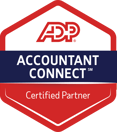Choosing a CRM for your Business
Jay Mims
8/12/20242 min read
Several CRM systems are popular for their features, usability, and adaptability to various business needs. Here are some of the top CRM options:
1. Salesforce
Overview: Salesforce is one of the most widely used CRMs globally. It offers a comprehensive suite of tools for sales, customer service, marketing, and analytics.
Best For: Large enterprises, businesses with complex needs.
Key Features: Customizable dashboards, AI-driven insights, integration with many third-party applications, and robust reporting tools.
2. HubSpot
Overview: HubSpot CRM is known for being user-friendly and offering a free version with solid features. It integrates seamlessly with HubSpot's marketing, sales, and service hubs.
Best For: Small to medium-sized businesses, startups.
Key Features: Contact management, email tracking, lead capture forms, and reporting tools.
3. Zoho
Overview: Zoho is an affordable option that provides a wide range of features and customization options. It is part of the broader Zoho Suite, which includes various business applications.
Best For: Small to medium-sized businesses, budget-conscious companies.
Key Features: Sales automation, lead management, AI-powered analytics, and multi-channel communication tools.
4. Microsoft Dynamics 365
Overview: Microsoft Dynamics 365 is a robust CRM that integrates well with other Microsoft products like Office 365 and Teams. It offers a full suite of CRM and ERP capabilities.
Best For: Enterprises, businesses heavily invested in the Microsoft ecosystem.
Key Features: Customizable workflows, AI insights, integration with Microsoft products, and scalable architecture.
5. Pipedrive
Overview: Pipedrive is a sales-focused CRM that is highly visual and easy to use. It helps sales teams manage their pipelines more effectively.
Best For: Small to medium-sized sales teams, businesses focused on sales processes.
Key Features: Visual sales pipeline, deal management, activity tracking, and reporting tools.
6. Salesflare
Overview: Salesflare is a simple, intelligent CRM that automatically populates and organizes customer data. It is designed with automation in mind to reduce manual data entry.
Best For: Small B2B businesses, teams looking for automation.
Key Features: Automated data entry, email and website tracking, lead scoring, and a user-friendly interface.
7. Insightly
Overview: Insightly combines CRM features with project management tools, making it a good choice for businesses that need to manage projects alongside customer relationships.
Best For: Small to medium-sized businesses, especially those with project management needs.
Key Features: Contact management, task and project management, workflow automation, and reporting.
8. Freshsales (by Freshworks)
Overview: Freshsales offers an easy-to-use interface with robust features like AI-based lead scoring and integrated phone and email.
Best For: Small to medium-sized businesses, particularly those looking for a balance between simplicity and functionality.
Key Features: AI-driven insights, lead scoring, built-in phone and email, and workflow automation.
These CRMs cater to various business sizes and needs, so the best choice depends on your specific requirements, such as the size of your business, your budget, and the features you prioritize.

Credentials
CPA # 44657
QuickBooks Pro Advisor
Schedule a meeting
386-846-9140
jay@integralcpa.com
128 Orange Ave
Daytona Beach, FL 32114
© 2025. All rights reserved.






